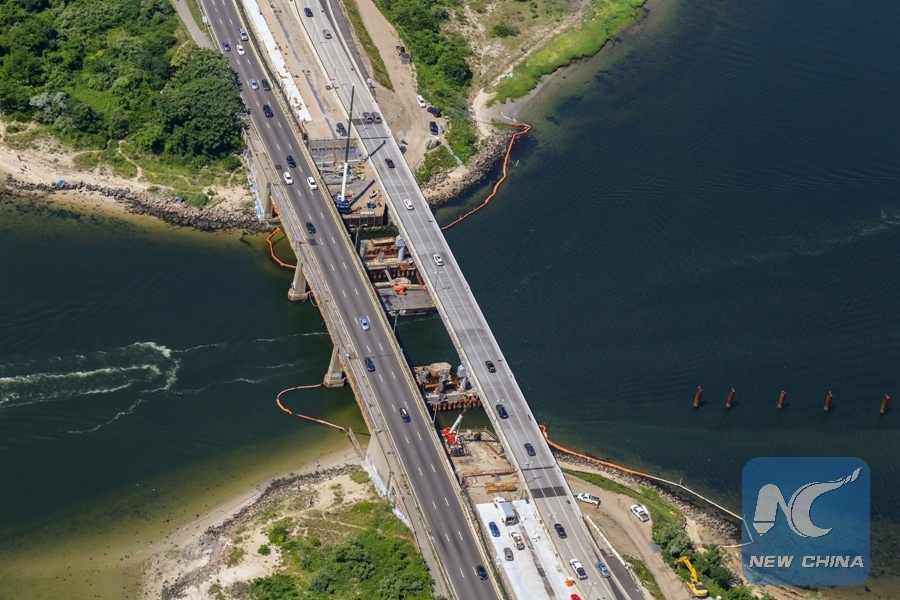
File Photo: Photo taken on July 19, 2016 shows the construction site of the rehabilitating project of Gerritsen Inlet Bridge carried out by China Construction America in New York, the United States. (Xinhua/China Construction America)
NEW YORK, Oct. 2 (Xinhua) -- The U.S. administration's tariffs and the resulting retaliation have inflicted suffering upon thousands of American farmers, workers, companies and consumers, and this is far from over, U.S. economists said.
The trade row, escalated to an additional tariff on 200 billion U.S. dollars worth of Chinese goods in September, is fraught with long-term, strategic "unintended consequences" to the U.S. economy, they have warned.
As the tariffs begin to make China look more expensive, some companies are scrambling to rethink their supply chains for a cheaper place to put their factories.
Yet companies adjusting their sourcing is not easy as "supply chains are built by companies with great care and substantial analysis," said Prof. Robert Sicina, executive in residence of Kogod School of Business at the Washington-based American University.
"To disrupt them is to negatively impact the confidence firms have in the U.S. having a consistent policy," Sicina told Xinhua in an interview.
"Without consistency, firms will move their supply chains away from the U.S., not towards it. This is just one example of the unintended consequences of President (Donald) Trump's actions," said Sicina, who has 30 years of experience in senior executive positions at big banks and various entrepreneurial endeavors.
"The supply chain is always going to move to where the economics are best," he said, adding that "the economics are overwhelmingly in favor of China."
Another major, long-term unintended consequence, Sicina said, is that "foreign investment in the U.S. will also be disrupted because of the tariffs."
When investment flows into the United States, foreign investors have to consider its trade policies, as extra tariffs will impact investors' ability to import raw materials and export their products, Sicina explained.
"Trump's trade war is to curb foreign investment in the future, because they're going to lack confidence that the U.S. will play by the rules, because it's now breaking the rules of fair trade in expectation of cutting a better deal with China," he said.
According to data from the U.S. Bureau of Economic Analysis released in July, net foreign direct investment dropped to 51.3 billion dollars in the first quarter, a 37 percent fall from the same quarter in 2017 and a 65 percent decline from the first quarter of 2016.
The falloff in foreign investment "is a result of a general decline in the United States' attractiveness as a place to make long-term business commitments," Adam Posen, president of Peterson Institute for International Economics, argued in an article in the July 23 issue of Foreign Affairs magazine.
"This year, net inward investment into the United States by multinational corporations -- both foreign and American -- has fallen almost to zero, an early indicator of the damage being done by the Trump administration's trade conflicts and its arbitrary bullying of companies and governments," he wrote in the article "How Trump is Repelling Foreign Investment."
This shift of corporate investment away from the United States will weaken long-term U.S. income growth, reduce the number of well-paid jobs available, and exacerbate the ongoing shift of global commerce away from United States, he said.

